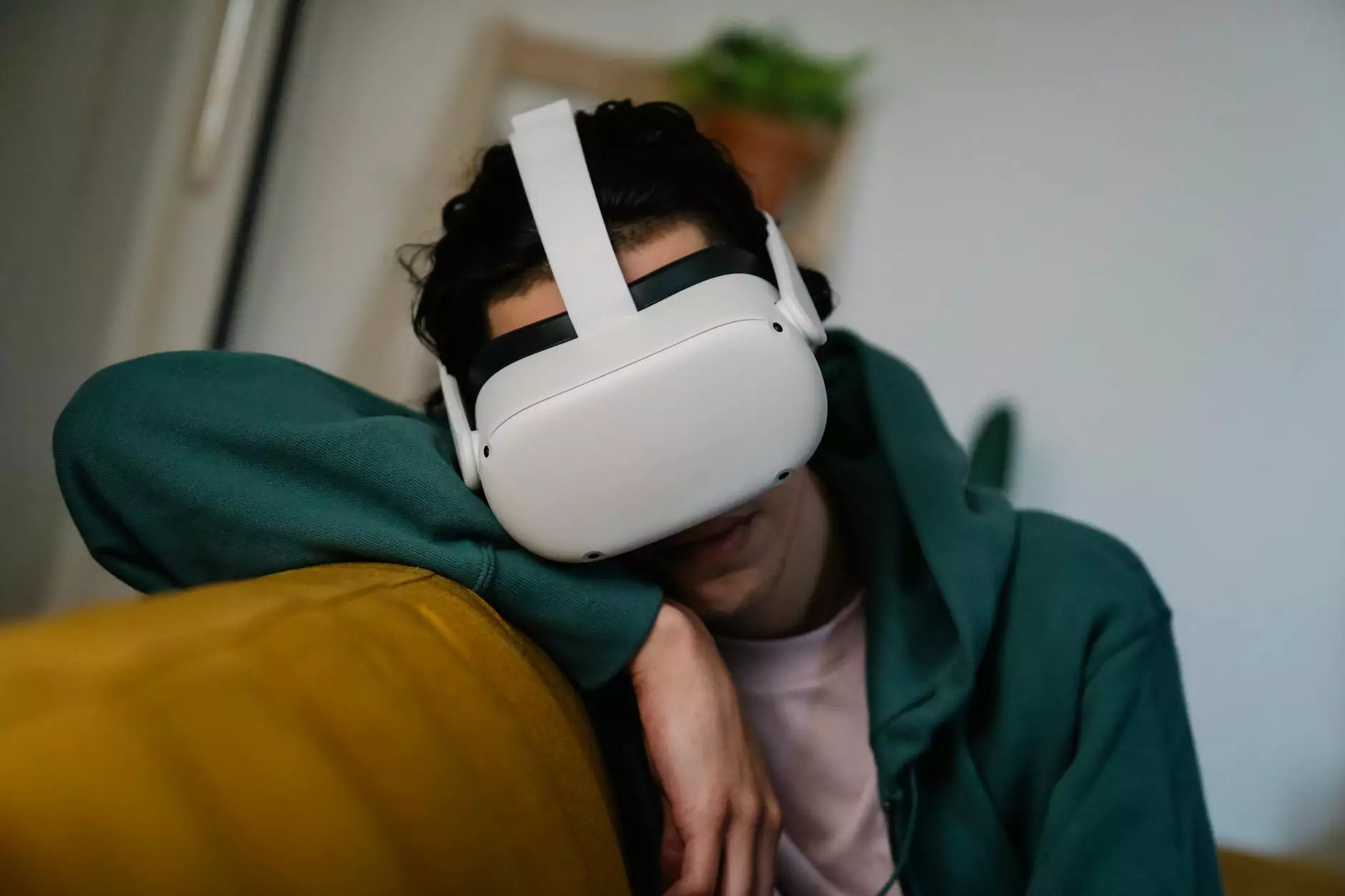Innovative Social VR Business Ideas for the Future

The world of Virtual Reality (VR) is rapidly evolving, and with it comes an array of opportunities for businesses to innovate and engage with their audiences in new and exciting ways. This is particularly true in the realm of social VR business ideas, where technology and social interaction intersect to create immersive experiences. In this article, we delve into some groundbreaking concepts and ideas that can help you carve out a niche in this burgeoning field.
The Rise of Social VR
As technology continues to advance, more users are flocking to social VR platforms. These platforms allow users to create avatars, interact with others in real-time, and experience environments that aren't limited by the physical world. This trend has not only changed how people socialize but has also opened up a wide array of business opportunities.
Why Invest in Social VR?
Investing in social VR presents unique advantages for entrepreneurs:
- Global Reach: VR allows you to connect with users from around the world, breaking geographical barriers.
- Engagement: Social VR fosters deeper connections through immersive experiences compared to traditional online forms of communication.
- Innovation: As a relatively new field, there is plenty of room for creative solutions and novel business models.
Top Social VR Business Ideas
1. Virtual Reality Learning Environments
Education can significantly benefit from social VR. Imagine a platform where students can attend virtual classrooms, exploring history through time travel simulations or engaging in science experiments that would be impossible in a traditional classroom. Social VR learning environments can be designed to facilitate:
- Collaborative Projects: Students can work together in virtual space, regardless of their physical locations.
- Interactive Learning: Instead of passive learning, students can engage actively with interactive content.
- Gamified Learning: Implementing game-like elements can increase motivation and retention rates among students.
2. Social VR Therapy Sessions
The mental health space has seen a rise in teletherapy, and social VR could take that further by creating immersive therapy sessions. Therapists can meet clients in peaceful virtual settings, facilitating relaxation and discussion. Potential benefits include:
- Safe Spaces: Clients can express themselves comfortably in a non-judgmental virtual environment.
- Accessibility: Individuals with mobility issues can access therapy without the stress of travel.
- Enhanced Engagement: Immersive experiences may help clients engage better during sessions.
3. Virtual Reality Fitness Communities
With the rise of remote working and sedentary lifestyles, a VR fitness community can bring people together to work out in virtual environments. This idea encompasses:
- Group Classes: Users can join live fitness classes with instructors and other participants, creating a sense of community.
- Virtual Challenges: Organizing fitness challenges can gamify exercise, motivating users to participate actively.
- Personal Training: Offering one-on-one coaching sessions in a virtual space where users can receive personal feedback.
4. VR-Based Cultural Experiences
People love to explore different cultures, and a social VR platform could offer curated cultural experiences. Users could participate in:
- Virtual Tours: Explore museums, galleries, and historic sites around the world.
- Live Performances: Attend concerts, theater productions, and festivals virtually.
- Culinary Experiences: Cooking classes from chefs in different countries, sharing their culture through their cuisine.
5. Retail and Virtual Shopping Experiences
The future of retail lies in creating engaging shopping experiences. Social VR shops could allow customers to:
- Try Before You Buy: Virtual try-ons for clothing, accessories, and even make-up can enhance the shopping experience.
- Shop with Friends: Users can invite friends to browse stores, check out products, and make purchases together.
- Exclusive Virtual Events: Organizing virtual launch parties or events that can attract audiences to participate and shop.
6. Virtual Reality Networking Events
As businesses become increasingly digital, networking can become impersonal. Social VR networking events can create a more intimate setting for:
- Conferences: Hosts can create virtual conferences to facilitate conversations and knowledge sharing.
- Workshops: Interactive workshops in a VR setting can enhance engagement and participation.
- Social Gatherings: Provide a space for professionals to meet and share ideas in a relaxed environment.
Addressing Challenges in Social VR Business Ideas
While the prospects of social VR business ideas are exciting, there are challenges that entrepreneurs must anticipate:
- Technology Access: Not everyone has access to the required technology, and VR headsets can be costly.
- Content Creation: Developing high-quality content takes significant resources and expertise.
- User Adoption: Convincing users to join platforms and engage actively in VR can be a hurdle.
Conclusion
The realm of social VR business ideas represents a frontier filled with potential for innovation and creativity. Whether it's through educational platforms, health and wellness initiatives, or virtual commerce, there are numerous avenues to explore. As technology continues to evolve, the opportunity to create engaging, interactive experiences that connect people across the globe is more significant than ever. Entrepreneurs who can harness the power of social VR will not only find success but can also contribute to shaping the future of how we connect and interact.
At Rot Studio, we are dedicated to exploring these innovative ideas and bringing them to life in virtual reality centers and educational platforms. Join us in redefining interaction and engagement in the virtual space!



